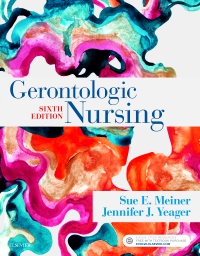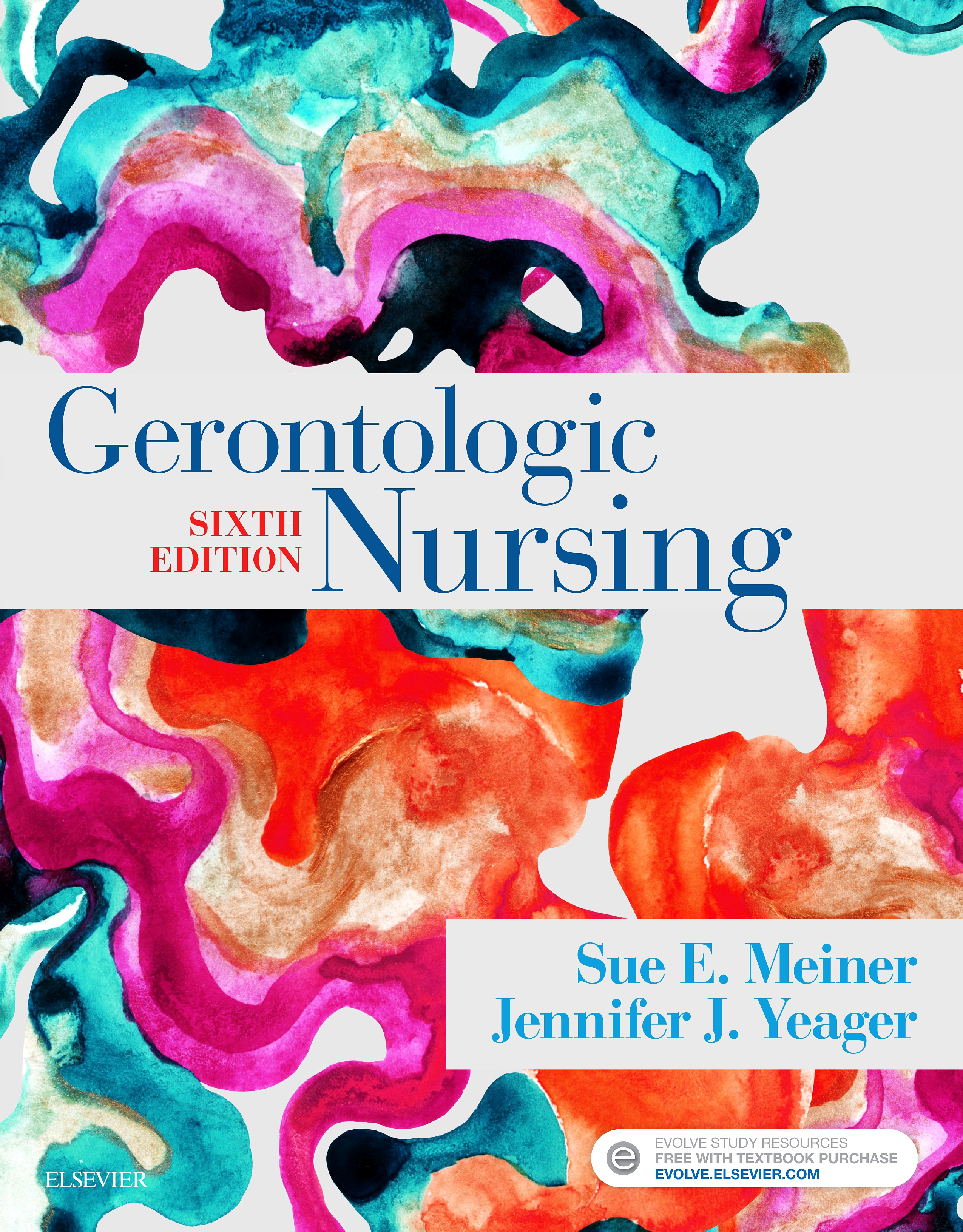
Gerontologic Nursing, 6th Edition
Paperback

Prepare students to compassionately care for the aging population with Gerontologic Nursing, 6th Edition, uniquely known for its comprehensive coverage of the most common medical-surgical problems associated with older adults. Organized by body system for easy retrieval of information, it delves into health promotion and both basic and complex gerontologic concepts and issues. This disorder-focused gerontologic nursing text features an enhanced focus on nursing management and care coordination across health care delivery settings. It emphasizes topics such as nutrition, chronic illness, emergency treatment, patient teaching, home care, and end-of-life care — and includes the latest guidelines for mammograms, colonoscopies, pneumonia, and shingles vaccinations. With the addition of new nursing theories, this edition offers a valuable framework for gerontologic care.
-
- EXPANDED! Increased focus on nursing management and care coordination across health care delivery settings.
- NEW! New nursing theories in chapter 2 provide a framework for gerontologic care.
- UPDATED! Up-to-date guidelines for mammograms, colonoscopies, pneumonia, and shingles vaccinations.
- UPDATED! Fall prevention updates help students better protect their patients.
- UPDATED! Updates on the challenges of caring for older adults with cognitive disorders ensure students are prepared.
- UPDATED! Updated chapters throughout reflect the current evidence to guide practice.
- Overview of age-related changes in structure and function included in all body system chapters.
- The most current standards and guidelines keep students in the know.
- Psychologic and sociocultural issues and aspects of older adult care integrated throughout the text.
- Critical thinking questions included at end of chapters.
- UNIQUE! Patient/Family Teaching boxes emphasize key aspects of practice and teaching for self-care.
- Health Promotion/Illness Prevention boxes provide tips to promote leading a healthy life.
- UNIQUE! Nutritional Consideration boxes demonstrate special nutritional needs and concerns facing the aging population.
- Evidence-Based Practice boxes pull the critical evidence-based information contained in the text into boxes for easy access and identification.
- Cultural Awareness boxes highlight differences in how key concepts are understood or practiced in various cultures.
- Home Care boxes highlight tips to promote practical, effective home care for the older adult.
- Key Points at end of chapters summarize the important concepts discussed in the chapter.
-
- EXPANDED! Increased focus on nursing management and care coordination across health care delivery settings.
- NEW! New nursing theories in chapter 2 provide a framework for gerontologic care.
- UPDATED! Up-to-date guidelines for mammograms, colonoscopies, pneumonia, and shingles vaccinations.
- UPDATED! Fall prevention updates help you better protect your patients.
- UPDATED! Updates on the challenges of caring for older adults with cognitive disorders ensure you are prepared.
- UPDATED! Updated chapters throughout reflect the current evidence to guide practice.
-
Part I: Introduction to Gerontologic Nursing
1. Overview of Gerontologic Nursing
2. Theories Related to Care of the Older Adult
3. Legal and Ethical Issues
4. Assessment of the Older Adult
Part II: Influences on Health and Illness
5. Cultural Influences
6. Family Influences
7. Socioeconomic and Environmental Influences
8. Health Promotion and Illness/Disability Prevention
Part III: Influences on Quality of Life
9. Nutrition
10. Sleep and Activity
11. Safety
12. Sexuality and Aging
13. Pain
14. Infection and Inflammation
Part IV: Diagnostic Studies and Pharmacologic Management
15. Laboratory and Diagnostic Tests
16. Drugs and Aging
Part V: Nursing Care of Physiologic and Psychologic Disorders
17. Integumentary Function
18. Sensory Function
19. Cardiovascular Function
20. Respiratory Function
21. Gastrointestinal Function
22. Urinary Function
23. Musculoskeletal Function
24. Cognitive and Neurologic Function
25. Endocrine Function
Part VI: Health Care Transitions
26. Health Care Delivery Settings and Older Adults
27. Chronic Illness and Rehabilitation
28. Cancer
29. Loss and End-of-Life Issues



 as described in our
as described in our 